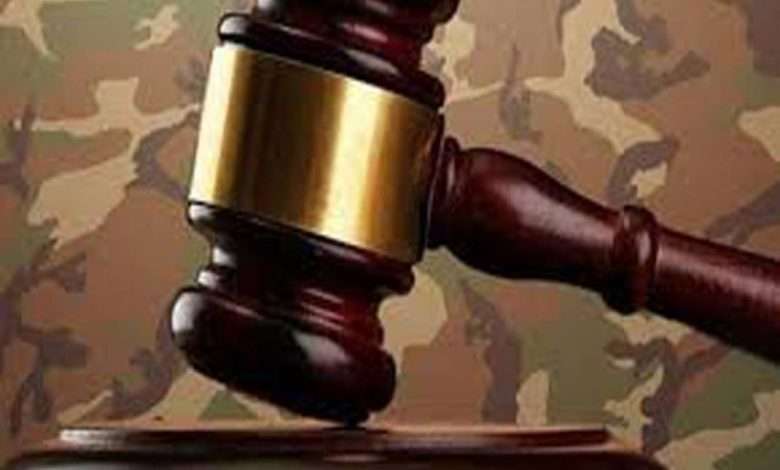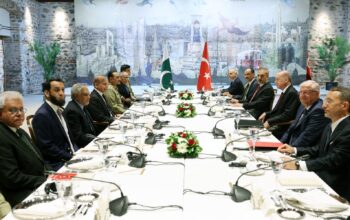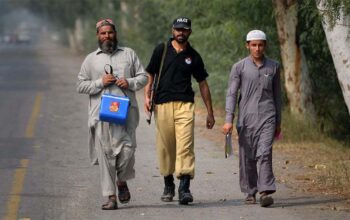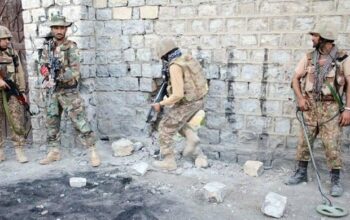By Staff Reporter
ISLAMABAD: Pakistan’s government on Monday defended its decision to try civilians accused of attacking sensitive military installations in military courts, saying it was an appropriate and proportionate response to the violent protests that erupted on May 9 following the arrest of opposition leader Imran Khan.
The government made the argument in a statement submitted by Attorney General Mansoor Usman Awan to the Supreme Court, which will resume hearing challenges to the trial of civilians in military courts on Tuesday.
The petitions were filed by former chief justice Jawwad S. Khawaja, lawyer Aitzaz Ahsan, activist Karamat Ali, and Khan himself, who heads the Pakistan Tehreek-e-Insaf (PTI) party. The attorney general had told the court in a previous hearing that 102 civilians, arrested from various parts of the country in the wake of May 9 violence, were in military custody.
The government said that the events of May 9 were not localised or isolated and indicated a premeditated and intentional attempt to undermine the country’s armed forces and internal security.
It said that the total damage came in at Rs2.54 billion rupees, including Rs1.98 billion rupees in losses to military establishments, equipment and vehicles.
The government said that while some of the police reports registered against the suspects did not explicitly mention provisions of the Army Act, which allows for the military trial of civilians, the Supreme Court had previously held that the contents of the reports and not the mentioning of a particular law determined the nature of the offenses.
The government further argued that the petitions against the military trial of civilians were not maintainable before the apex court under Article 184(3) of the Constitution, which empowers it to assume jurisdiction in matters involving public importance and fundamental rights.
The government said the challenges raised in the petitions could only be heard by the high courts under Article 199, which grants them original constitutional jurisdiction.
The government also pointed out that both the Army Act and the Official Secrets Act, which are invoked to try civilians for offenses against national security, predated the Constitution and had never been challenged till date.
The government argued that exercising original jurisdiction over the petitions would be judicially inappropriate as it would deprive those tried under the Army Act or the federation from invoking appellate jurisdiction.
The government also requested that the petitions be heard by a full court instead of a three-member bench, as one of the judges had expressed his preference for a larger bench.
The government said the trial of the accused persons, whether military personnel or otherwise, could not be challenged for violating fundamental rights. It highlighted the amendments made to the Army Act, which expanded its scope to include offenses that do not have a direct nexus with military duties.
The government said trials under the Army Act were conducted “as closely as possible, per the orthodox practices of judicial proceedings, as set forth and established by the superior judiciary.”
Copyright © 2021 Independent Pakistan | All rights reserved




